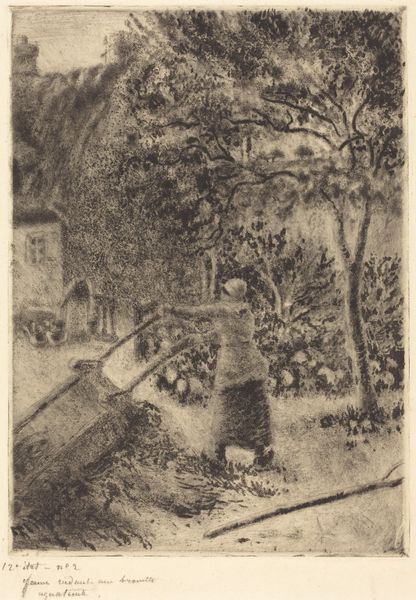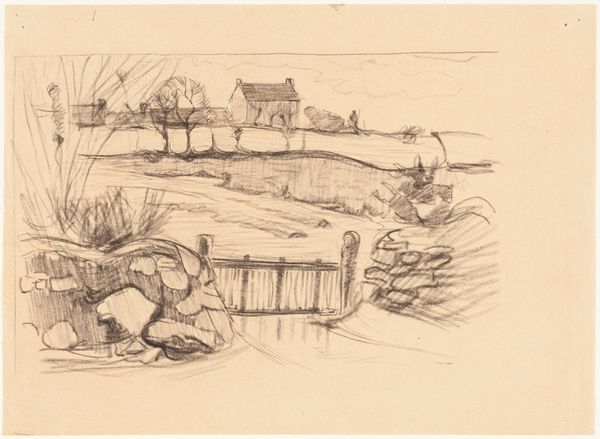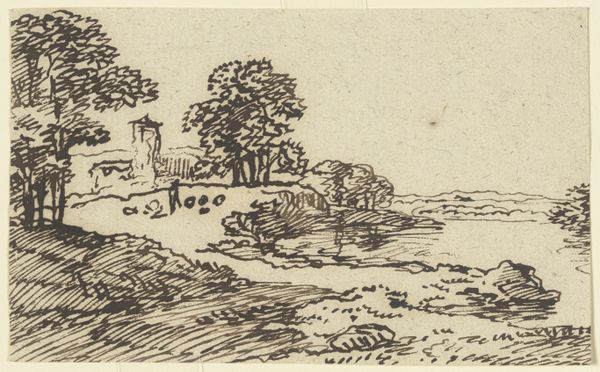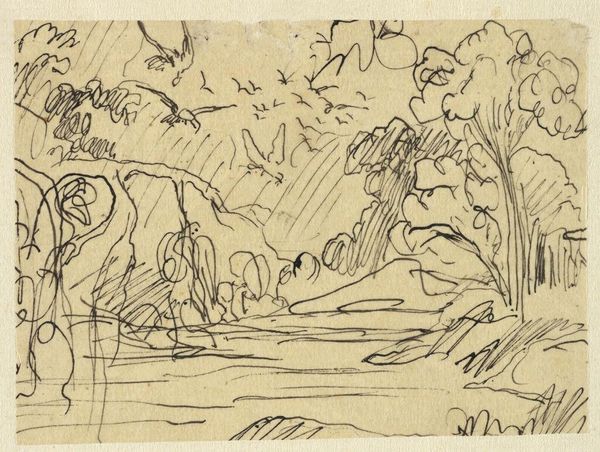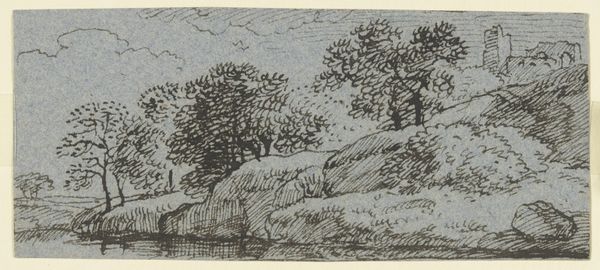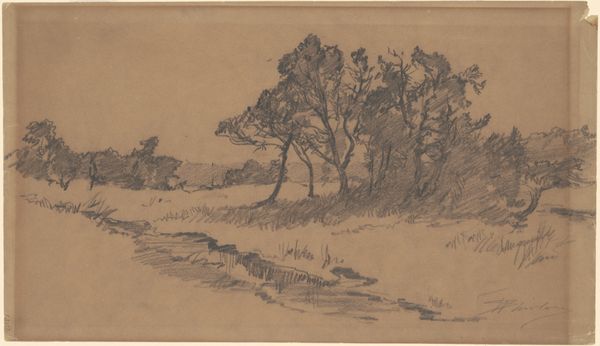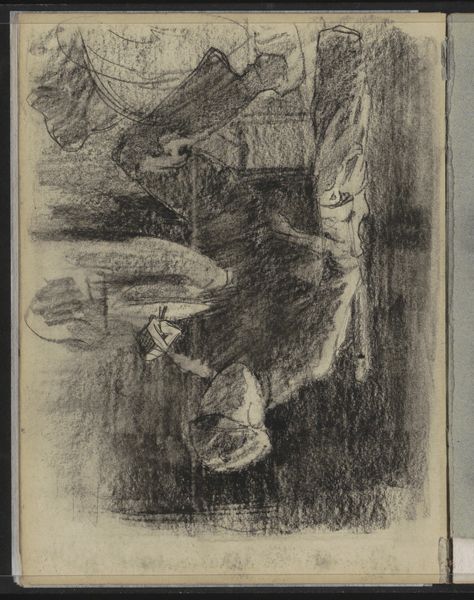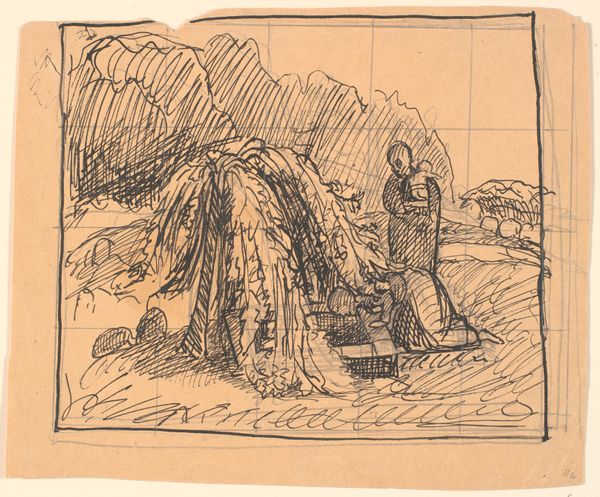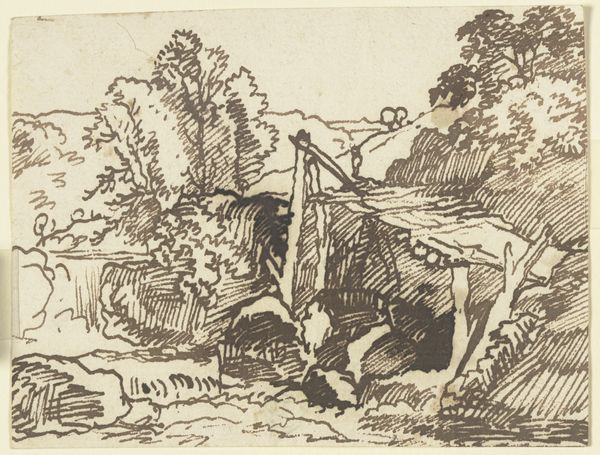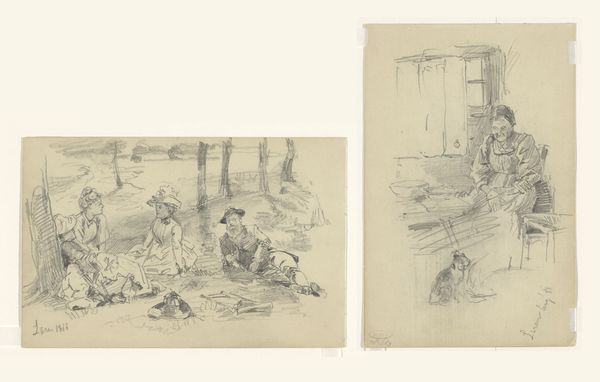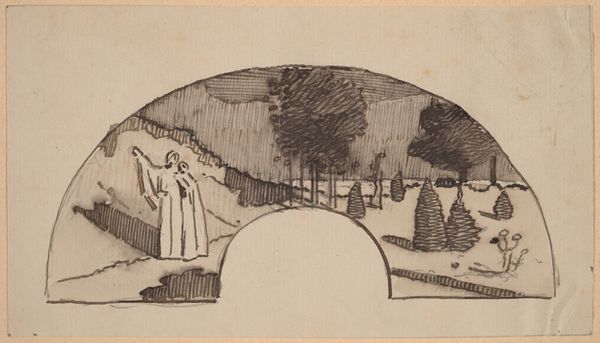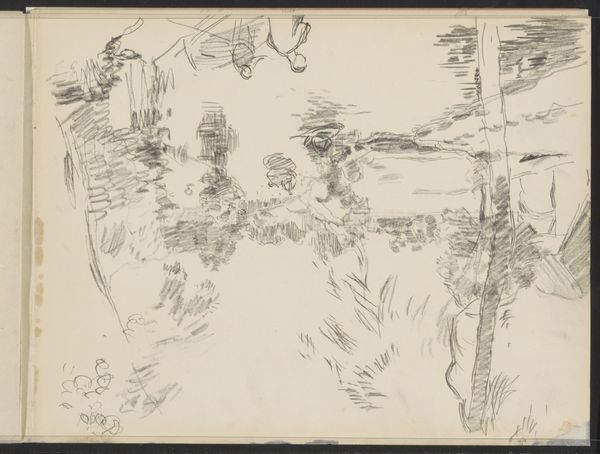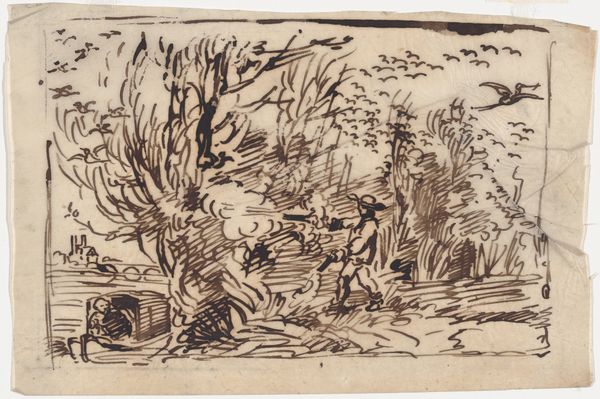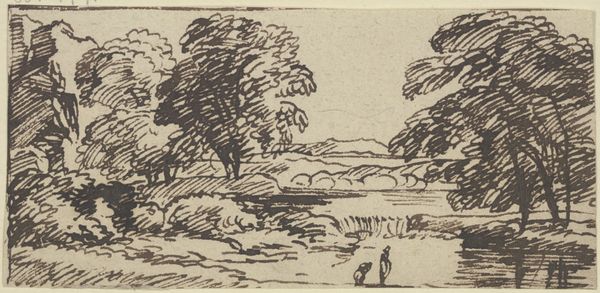
drawing
#
drawing
#
toned paper
#
ink drawing
#
quirky sketch
#
pen sketch
#
personal sketchbook
#
ink drawing experimentation
#
pen-ink sketch
#
sketchbook drawing
#
watercolour illustration
#
sketchbook art
Dimensions: overall: 31.9 x 44.4 cm (12 9/16 x 17 1/2 in.)
Copyright: National Gallery of Art: CC0 1.0
Editor: Here we have Paul Gauguin's "Landscape at Pont-Aven" from around 1888, created using ink on toned paper. It's a sketch, seemingly a preliminary work. It's really intriguing how the image feels both complete and unfinished simultaneously. What do you see in this piece? Curator: Well, on the surface it's a deceptively simple landscape. But if we consider Gauguin's broader project, especially his interest in rejecting academic naturalism for a more subjective and symbolic language, we see a challenge to colonial ways of seeing and representing. Pont-Aven, in Brittany, was a place many artists sought out. Why there, and not, say, Paris? What social structures are at play that supported that type of artistic pilgrimage? Editor: That's fascinating! I hadn't considered that aspect. It seemed like a quaint retreat. So, are you saying the *choice* of Pont-Aven itself is a political statement against the established art world? Curator: Exactly! Artists flocked to rural areas often romanticizing the "authentic" and "untouched". But what does that mean when we consider the existing communities who were living and working there? Who is the art for and whom does it displace, physically or figuratively? The visible, rough strokes here seem intentional—a move away from polished, academic styles, a conscious rejection. What stories are *not* being told with this stylized and quite frankly, stereotypical imagery of rural life? Editor: So it is then both about challenging artistic norms and about confronting power dynamics related to landscape, rural life and art? Curator: Precisely. And that incomplete quality you noticed? I would push you to consider that lack of polish, not as a shortcoming but as an important part of his project to develop his visual language in relation to what he saw as a more direct relationship with both the subject and with his own "primitive" vision. It’s messy, complicated. Editor: I'm going to look at Gauguin's other works with a very different lens from now on! Curator: As will I, always open to reassessment. Thanks for that thoughtful interpretation!
Comments
No comments
Be the first to comment and join the conversation on the ultimate creative platform.
